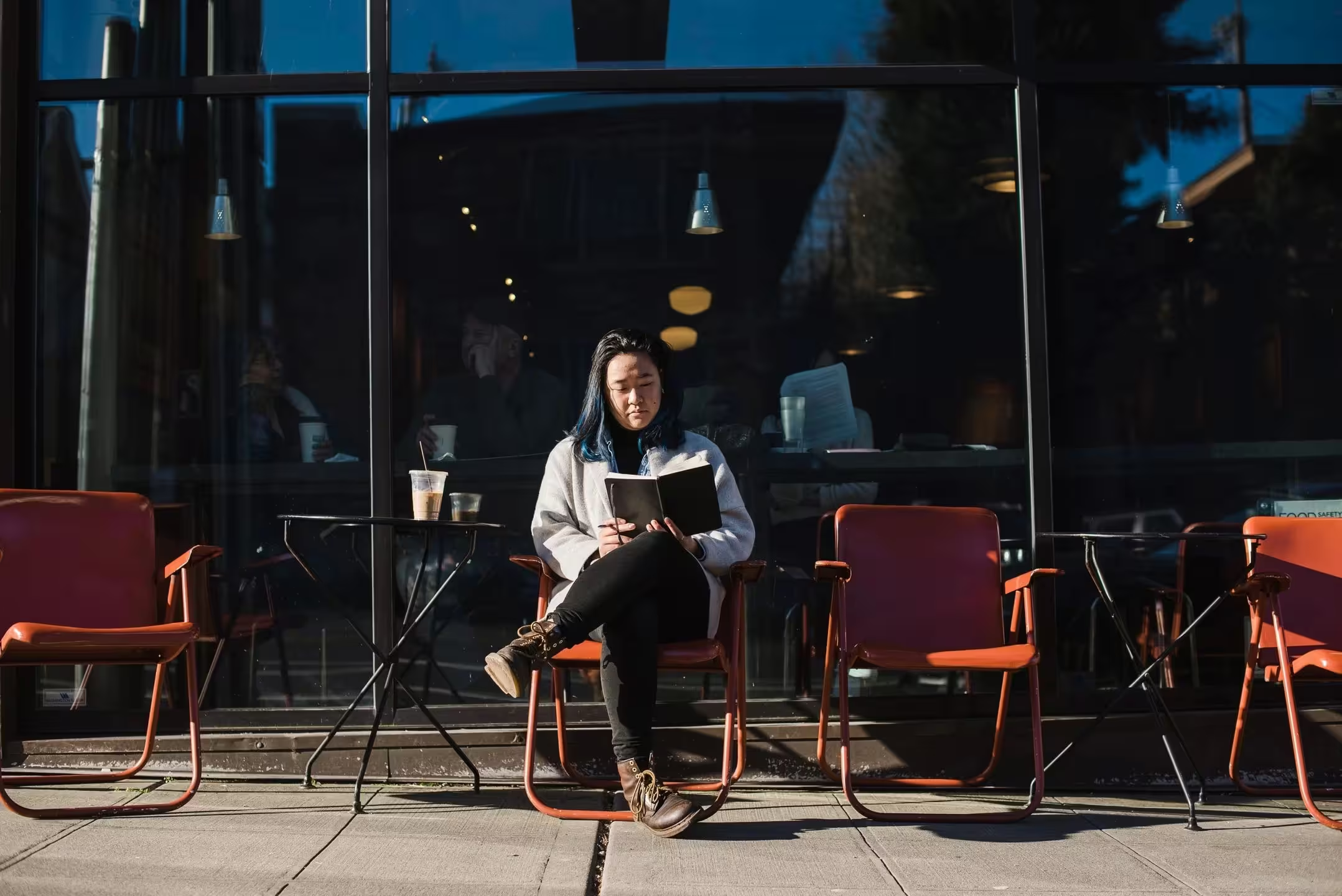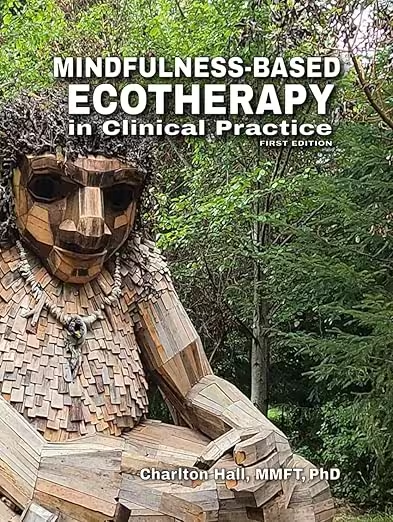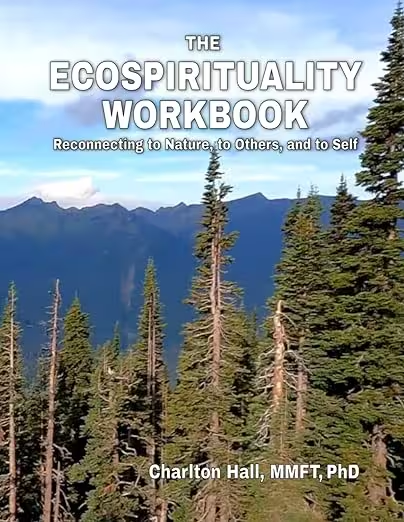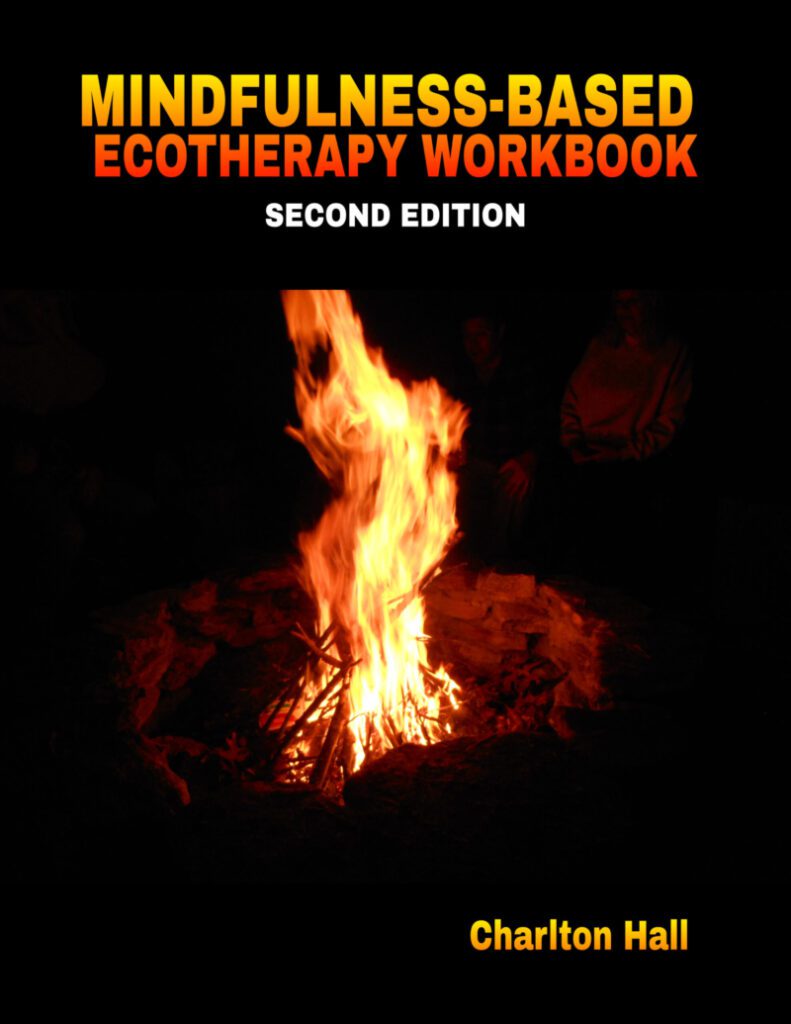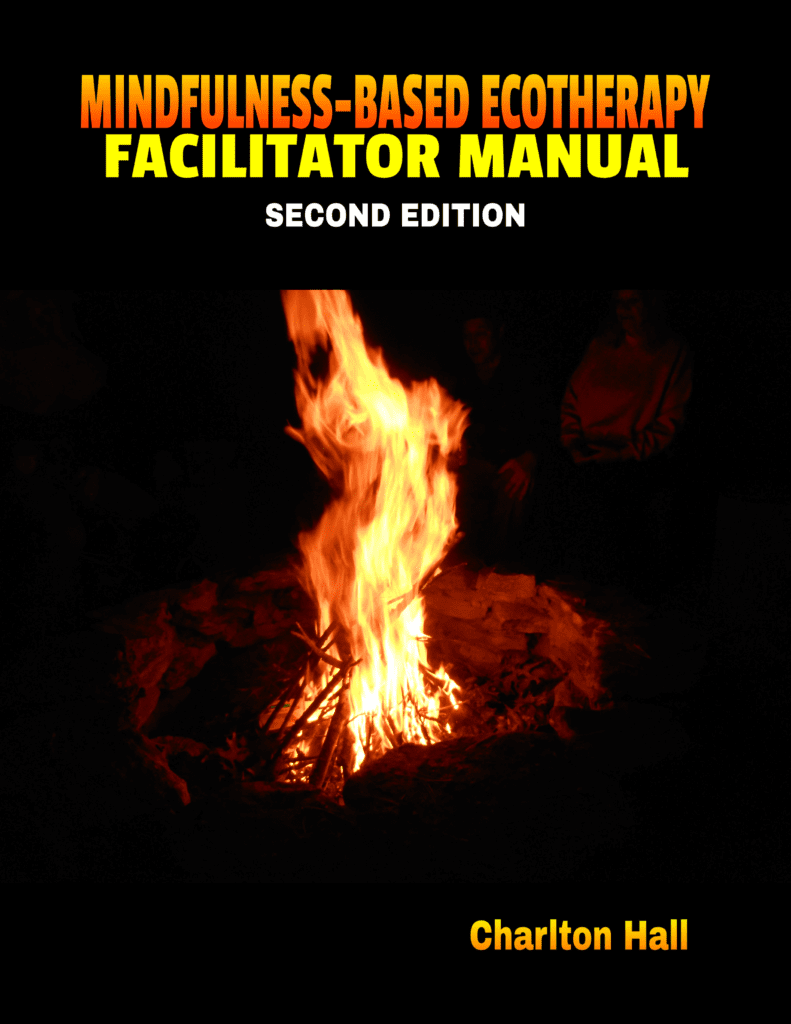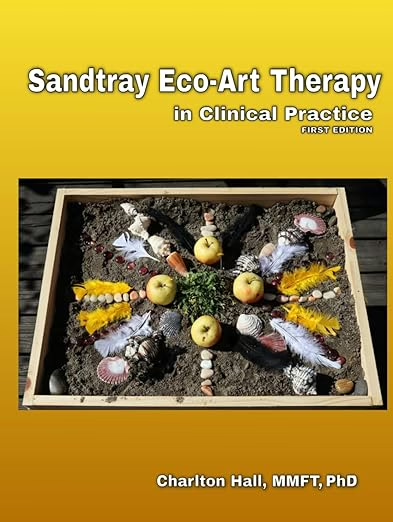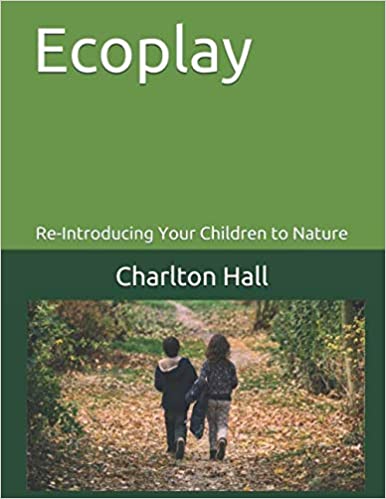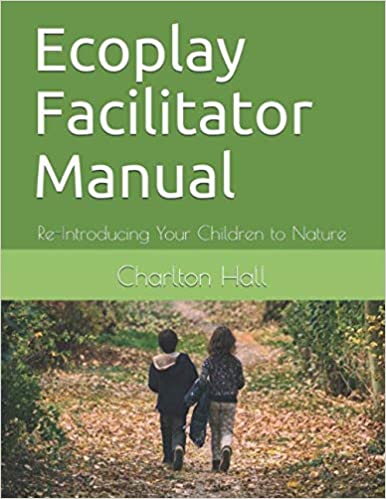COURSES CURRENTLY OFFERED BY THE MINDFUL ECOTHERAPY CENTER
About | About Mindfulness-Based Ecotherapy (MBE) | About MBE Certification | Books | Charlton Hall, MMFT, PhD | Contact | Directory | FAQs | Gallery | Help Center | Mindful Moments | NBCC ACEP #7022 | Privacy Policy | Refund Policy | Resources | Shopping Cart | Subscribe | Terms & Conditions | MBE on Youtube
The Mindful Ecotherapy Center, LLC, and Dr. Charlton Hall offer a range of workbooks and textbooks that focus on integrating mindfulness and ecotherapy into clinical practice. These resources emphasize evidence-based approaches to combining mindfulness with nature-based therapies. Topics include mindfulness exercises, ecotherapeutic interventions, eco-art therapy, meditation, and techniques for enhancing mental health through a connection with nature.
Mindfulness-Based Ecotherapy in Clinical Practice
This is the textbook for the Mindfulness-Based Ecotherapy in Clinical Practice online home study course.
NOTE: If you enroll in the course there is no need to purchase this textbook, as a pdf copy is included with the course materials. If you are enrolled in the course, only purchase if you would like a hard copy of the textbook.
This textbook provides a comprehensive guide to Mindfulness-Based Ecotherapy that integrates mindfulness practices with nature-based therapy techniques, offering insights and practical tools for mental health professionals looking to enrich their therapeutic approaches with mindfulness and ecotherapy. Here is the step-by-step guide on how to effectively use this resource in your clinical practice.
Mindfulness-Based Ecotherapy (MBE) is a therapeutic approach that combines traditional mindfulness practices with ecotherapy, which involves interacting with nature to promote mental well-being. MBE is rooted in the principles of mindfulness, which is the practice of being fully present and aware of the moment without judgment, and ecotherapy, which is the therapeutic use of nature and outdoor settings as a context for healing and personal growth.
Each chapter contains information on the foundational concepts and theoretical underpinnings of MBE. Understanding the rationale behind combining mindfulness and ecotherapy will provide a solid base for integrating these practices into your own sessions.
Key topics covered in this text include the historical background of mindfulness and ecotherapy, and the historical background and theoretical framework for many of the techniques used in Mindfulness-Based Ecotherapy (MBE). We will also discuss the core principles of MBE and what the latest research says about the benefits of MBE.
Many of the chapters will look at the science behind nature’s impact on mental health, using evidence-based principles and citations to recent studies on the tools and techniques introduced in each chapter.
The textbook offers a variety of mindfulness and ecotherapy exercises that can be adapted for both individual and group therapy settings, and there is a chapter covering most of the major interventions and activities used in MBE.
The practice of MBE brings its own unique challenges and opportunities. There are detailed session plans and structures provided in the textbook to organize your therapy sessions. The book outlines various stages of MBE, from introductory sessions to advanced practices, ensuring a comprehensive approach. We will also review how to address some of the challenges unique to the practice of MBE.
MBE also has distinct ethical and practical considerations. This textbook will review and help you to understand the ethical and practical considerations involved in incorporating MBE into clinical practice. This includes maintaining professional boundaries, ensuring client safety during outdoor activities, and respecting the natural environment. We will also review some of the challenges to be overcome to maintain confidentiality even in outdoor settings, being mindful of potential interruptions or onlookers.
This text will also teach you how to conduct thorough risk assessments for outdoor activities and have contingency plans for adverse weather or other issues.
You will also learn how to promote environmental stewardship and encourage clients to engage with nature in a respectful and sustainable manner.
The Ecospirituality Workbook
Reconnecting to Nature, to Others, and to Self
This is the official work book for the Ecospirituality Program developed by Dr. Charlton Hall. Ecospirituality focuses on achieving mindful states in nature. It is through these moments of connection that ecospirituality works its magic. There are twelve skills of ecospirituality. The first six skills are mindful skills. The remaining six skills are ecospirituality skills. Each session of the 12-week program covers one of these skills.
Session 1: Mindful Awareness
Mindful Awareness is a way of tuning in to what is happening right now, at this moment.
Session 2: Living in the Now
Living in the Now means allowing yourself to be in this moment, here and now.
Session 3: Letting Go
Ecospirituality teaches us how to let go of stress and anxiety through the power of mindful acceptance.
Session 4: Radical Acceptance
Acceptance teaches us that we are not our thoughts and that we are not our emotions. We are something different.
Session 5: Wise Mind and Wise Body
Wise Mind is the joining of Rational Mind and Emotional Mind in balance and harmony. When we can balance Rational Mind and Emotional Mind, we will achieve Wise Mind.
Session 6: Centering
Centering allows you to connect with your own True Self through ecospiritual exercises. The more centered you are, the more your perceived self and your True Self integrate and align.
Session 7: Connecting
Spirituality is all about connectedness. Ecospirituality can help you achieve personal spiritual growth through fostering a sense of connection to nature, to others, and to your own True Self.
Session 8: Nature as Metaphor
We all have personal stories called “my life.” The good news about the story of our lives is that we are the only authors. If we don’t like the way the story is going, we have the power to rewrite it at any time.
Session 9: Nature as Teacher
The lessons our ancestors learned about nature haven’t gone away. They’re still there, waiting in the forest like an open book. All we have to do is to learn how to read it using Nature as Teacher.
Session 10: Nature as Nurture
When we allow nature to nurture us, we are healed. When we nurture the nature around us, we set up a reciprocal cycle of nurturing that allows us to become one with nature.
Session 11: Nature as Healer
Ecospirituality helps you to connect to the healing power of nature using evidence-based activities in natural environments. This skill allows you to accept the power of Nature as Healer.
Session 12: Living in True Self
The ultimate goal of the Ecospirituality program is to realize and acknowledge your True Self, and to live in it. Doing so allows you the opportunity to re-connect in positive ways with nature, with others, and with yourself. When you learn to do so, you will be Living in True Self; the person you were born to be.
THE MINDFULNESS-BASED ECOTHERAPY WORKBOOK
This is the second edition of the Mindfulness-Based Ecotherapy Workbook. The original workbook was published in 2015, and the sciences of mindfulness and ecotherapy have advanced a great deal since that time. This second edition was updated to reflect this new research.
This edition, like its predecessor, was written to accompany the 12-week Mindfulness-Based Ecotherapy workshop series. Some of the exercises in this new edition have changed based on participant feedback regarding what is more helpful in facilitating nature experiences.
This new version of the handbook introduces the 12 skills of Mindfulness-Based Ecotherapy (MBE) and introduces one of these skills at each of the 12 sessions in the program.
Although this book is designed to accompany the 12-week Mindfulness-Based Ecotherapy workshop series, it may also be completed on your own at home. The experiential nature of the work allows anyone with access to outdoor spaces the opportunity to complete the series. If you are interested in participating in a workshop series near you, you can visit the directory of Mindfulness-Based Ecotherapy programs worldwide.
THE MINDFULNESS-BASED ECOTHERAPY FACILITATOR MANUAL
This Second Edition of the Facilitator Manual for the Mindfulness-Based Ecotherapy Program contains the complete text of the Mindfulness-Based Ecotherapy Workbook plus additional material on how to facilitate each session of the program. The Facilitator Manual also includes information on running a successful group, and the stages of group change and group dynamics. This manual is designed to help facilitators of the Mindfulness-Based Ecotherapy program successfully implement a workshop series.
The Mindfulness-Based Ecotherapy workshop series teaches you the 12 skills of Mindfulness-Based Ecotherapy (MBE) by introducing one of these skills at each of the 12 sessions in the program. The experiential nature of the work allows anyone with access to outdoor spaces the opportunity to complete the series on their own.
The Mindfulness-Based Ecotherapy Workbook allows you to embrace the healing power of nature in an experiential way.
Sandtray Eco-Art Therapy in Clinical Practice
Sandtray Eco-Art Therapy in Clinical Practice offers a nature-based approach to therapy by combining the rich symbolism of sandtray therapy with the expressive, healing power of eco-art. This textbook introduces readers to a pioneering model that bridges two therapeutic methods, creating an innovative framework for clinicians working with individuals and groups facing various emotional, psychological, and behavioral challenges.
Rooted in mindfulness-based ecotherapy, this text emphasizes the role of nature in the healing process, helping clients reconnect with the environment and, in turn, with themselves. Sandtray Eco-Art Therapy (SEAT) blends the tactile, reflective process of sandtray therapy—where clients use miniatures to build symbolic worlds within a sandbox—with eco-art therapy, which invites clients to work with natural elements like leaves, stones, and wood in their artistic creations. This combination enhances therapeutic outcomes by fostering emotional expression, self-awareness, and grounding in the present moment.
The book offers clear, step-by-step instructions for integrating SEAT into your clinical practice, covering practical considerations for setting up a sandtray eco-art space, selecting materials, and structuring sessions to facilitate healing conversations. Through case studies, clinicians will gain insight into how SEAT can be applied to a variety of populations, including children, adolescents, and adults, helping clients navigate issues such as trauma, anxiety, grief, and relationship challenges.
Sandtray Eco-Art Therapy in Clinical Practice provides theoretical underpinnings that link SEAT to current trends in ecotherapy, expressive arts therapies, and mindfulness-based interventions. Readers will also find practical tips for tailoring SEAT to specific therapeutic goals, as well as methods for evaluating and documenting client progress.
Whether you are new to sandtray or eco-art therapy or are seeking to expand your existing toolkit with nature-based interventions, this textbook serves as a valuable resource. With a focus on creativity, environmental connection, and client-centered care, Sandtray Eco-Art Therapy in Clinical Practice offers a holistic path toward healing that integrates mind, body, and spirit. Perfect for therapists, counselors, social workers, and students, this text equips you with the knowledge and confidence to bring the benefits of nature and creativity into the clinical setting.
Ecoplay: Re-Introducing Your Children to Nature
This workbook is the manual for the Ecoplay program.
Ecoplay is an evidence-based eight-session training program designed to give parents and their children the opportunity for experiential activities outdoors that combine mindfulness, ecopsychology, and the skills of positive parenting.
Ecoplay is an authoritative, rather than authoritarian, approach to discipline and parenting. It is a framework for guiding your child(ren) to reconnect to nature in healing ways.
Ecoplay trains parents to be nature-based play therapy facilitators for their own children. It is also a theoretical framework and approach to parenting that allows children to express themselves in play, their natural language.
Ecoplay allows this expressive play to happen in healthy natural outdoor environments.
Ecoplay Facilitator Manual
This is the Facilitator Manual for the Ecoplay: Re-Introducing Your Children to Nature workshop series. If you wish to conduct your own Ecoplay workshops, this manual contains the complete text of the Ecoplay: Re-Introducing Your Children to Nature workbook, plus helpful tips for facilitating each session of the program. It is a valuable tool for mental health professionals and play therapists interested in incorporating nature into their work.
Ecoplay is an evidence-based eight-session training program designed to give parents and their children the opportunity for experiential activities outdoors that combine mindfulness, ecopsychology and the skills of positive parenting. Ecoplay is an authoritative, rather than authoritarian, approach to discipline and parenting.
It is a framework for guiding your child(ren) to reconnect to nature in healing ways.
Ecoplay trains parents to be nature-based play therapy facilitators for their own children. It is also a theoretical framework and approach to parenting that allows children to express themselves in play, their natural language.
Ecoplay allows this expressive play to happen in healthy natural outdoor environments.

